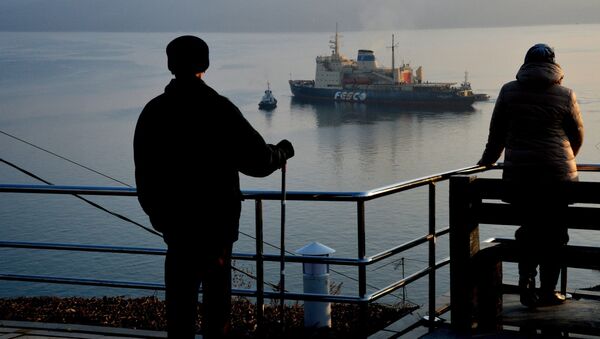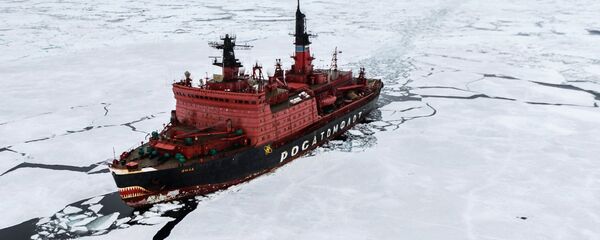"Russia is looking forward to close and productive work with the Arctic Economic Council chaired by Finland," Ambrosov said.
"The head of this large shipping company has been elected to Chair the Council, and we hope that the Council will achieve great results in the development of Arctic shipping and enhancing the regulatory framework," Ambrosov noted.
Finland took over the rotating Arctic Council chairmanship from the United States during the latest biennial meeting. Helsinki assumed the chairmanship for the 2017-2019 period.
Finland's chairmanship priorities include environmental protection, connectivity, meteorological cooperation and education.
"Vessels operating in the Arctic environment have to meet the highest environmental and safety standards," Ambrosov said. "Operating ships in the Arctic involves certain risks: from the complicated ice and climatic conditions to a shortage of qualified and well-adapted staff and the lack of necessary experience, within many shipping companies, of large-capacity vessels ice channeling."
This is why compliance with the highest technical and environmental standards should be an unequivocal priority for shipping companies, Ambrosov explained.
"Sub-standard shipping is even more unacceptable in harsh Arctic conditions. The maintenance of quality and navigational standards in high latitudes should also be controlled, by the relevant state party if need be," Ambrosov stressed.
On 1 January 2017, an international Polar Code came into force to ensure safe vessel maintenance in the Arctic and Antarctic, and Polar environmental protection. However, key requirements of the Code, including concerning the environment and safety are left to the discretion of the State administration of the vessel’s flag.
"We would like vessel flag States — and there are quite a lot — to be very responsible in matters regarding the appropriate requirements for vessels operating in the Arctic," Ambrosov claimed.
Ambrosov also said the performance of new Sovcomflot tankers, in terms of emissions, will be much better than that required by IMO standards scheduled to take effect in 2020.
The technical specification for these vessels will be significantly better than those required under the regulations that will take effect in 2020, the executive vice president maintained.
The first four vessels will be operated in the Baltic Sea Basin, Ambrosov revealed, followed by a series of four more vessels with a wider area of trading. Adopting the latest technologies, utilizing LNG as fuel, will not only trigger development of the infrastructure for bunkering vessels with LNG, but it will also lead to an increase in the demand for and consumption of this environmentally friendly fuel.
The company routinely makes significant investments in upgrading its fleet and replacing the previous generation of vessels with more advanced ones, he said, that incorporate innovative technologies. As of today, the average age of vessel in Sovcomflot’s fleet is about 9 years, which is one of the youngest in the global shipping industry, Ambrosov noted.
Sovcomflot is the largest shipping company in Russia, and one of the world's leaders in the seaborne transportation of energy, and the support of oil and gas projects on the continental shelf. It is the world's leading fleet operator in terms of its capabilities in adverse climatic conditions.







